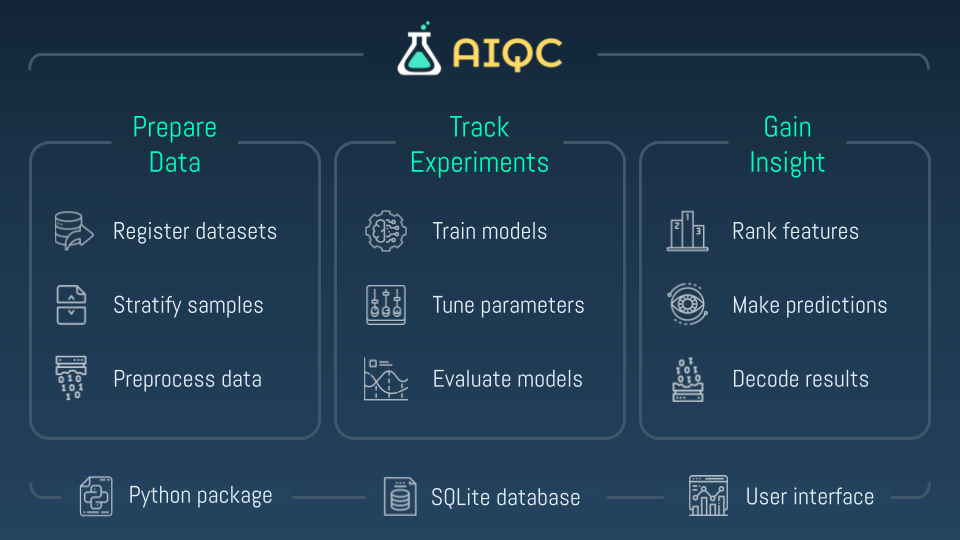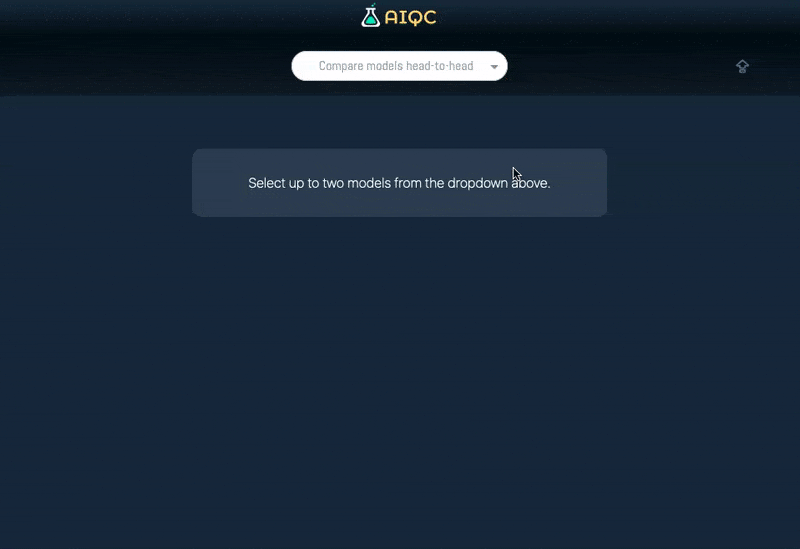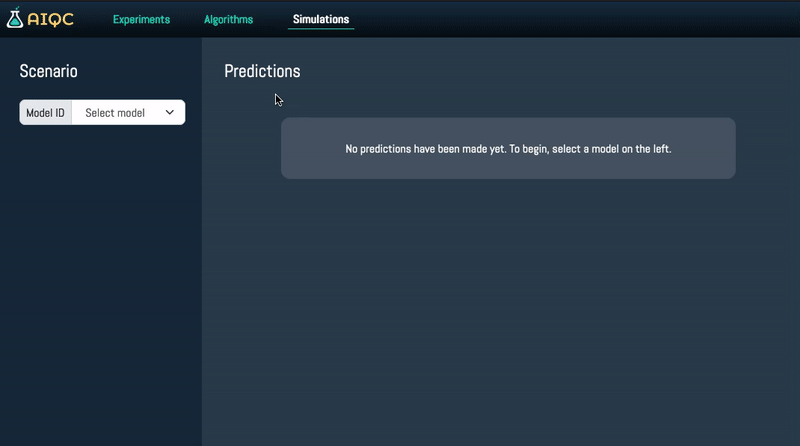
Security News
Research
Data Theft Repackaged: A Case Study in Malicious Wrapper Packages on npm
The Socket Research Team breaks down a malicious wrapper package that uses obfuscation to harvest credentials and exfiltrate sensitive data.

AIQC is an open source Python package that provides a declarative API for end-to-end MLOps (dataset registration, preprocessing, experiment tracking, model evaluation, inference, post-processing, etc) in order to make deep learning more accessible to researchers.
The backend is a SQLite object-relational model (ORM) for machine learning objects (Dataset, Feature, Label, Splits, Algorithm, Job, etc). The high-level API stacks these building blocks into standardized workflows for various: analyses (classify, regress, generate), data types (tabular, sequence, image), and libraries (TensorFlow, PyTorch). The benefits of this approach are:


# Built on Python 3.7.12 to mirror Google Colab
$ pip install --upgrade pip
$ pip install --upgrade wheel
$ pip install --upgrade aiqc
# Monitor and evaluate models (from CLI)
$ python -m aiqc.ui.app
# High-level API
from aiqc import mlops
# Declare preprocessing steps
mlops.Pipeline()
# Define, train, & evaluate models
mlops.Experiment().run_jobs()
# Infer using original Pipeline
mlops.Inference()
Official Installation Documentation:
https://aiqc.readthedocs.io/en/latest/notebooks/installation.html
FAQs
End-to-end machine learning on your desktop or server.
We found that aiqc demonstrated a healthy version release cadence and project activity because the last version was released less than a year ago. It has 1 open source maintainer collaborating on the project.
Did you know?

Socket for GitHub automatically highlights issues in each pull request and monitors the health of all your open source dependencies. Discover the contents of your packages and block harmful activity before you install or update your dependencies.

Security News
Research
The Socket Research Team breaks down a malicious wrapper package that uses obfuscation to harvest credentials and exfiltrate sensitive data.

Research
Security News
Attackers used a malicious npm package typosquatting a popular ESLint plugin to steal sensitive data, execute commands, and exploit developer systems.

Security News
The Ultralytics' PyPI Package was compromised four times in one weekend through GitHub Actions cache poisoning and failure to rotate previously compromised API tokens.